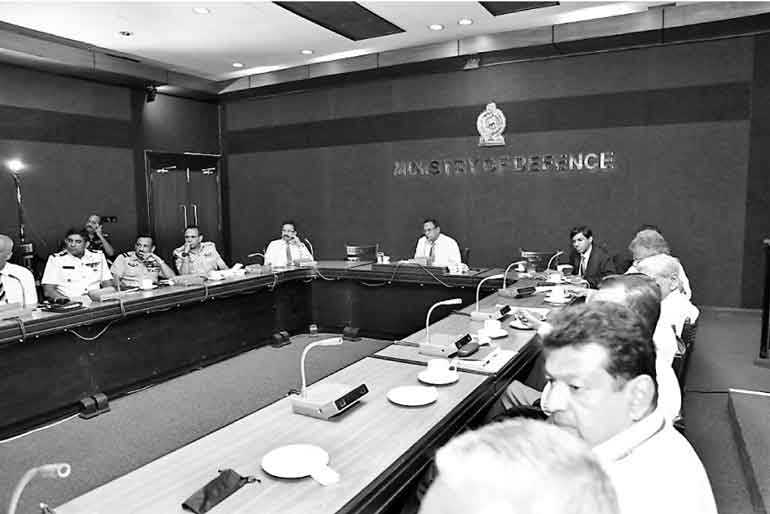Thursday Feb 26, 2026
Thursday Feb 26, 2026
Saturday, 29 June 2019 00:02 - - {{hitsCtrl.values.hits}}

The Institute of National Security Studies Sri Lanka (INSSSL) held its ‘Threat Lens Discussion’ titled ‘Easter Sunday terrorist attacks: Countering violent extremism in Sri Lanka’ at the Ministry of Defence Auditorium on 16 May.
INSSSL researchers presented their analysis on three inter-related areas: geopolitical dimension of the Easter Sunday terrorist attacks, radicalising drivers of Islamic extremism in Sri Lanka and the economic fallout of the terrorist attack.
INSSSL Director General Asanga Abeyagoonasekera outlined competing geopolitical explanations on the Easter Sunday attack and observed that ‘Sri Lanka was staged’ for the attack. He proposed security and intelligence reforms in the age of big data in order to pro-actively counter violent extremism and terrorism.
Senior Fellow Dr. Ranga Jayasuriya argued violent attacks on Easter Sunday were only a tip of the iceberg of a much larger non-violent extremism spearheaded by the spread of Wahabbism and Arabisation of the Sri Lankan Muslim community. He noted that in order to prevent the recurrence of future attacks and the self-alienation of the Muslim community, the Government should strive to reverse the Wahhabi phenomenon.
Research Analyst Kasuni Ranasinghe observed that the economic impact of the attacks is profound, as expressed in an estimated $ 1.5 billion loss in tourism earnings, investor uncertainty and stock market sell-off. She noted the economy was already vulnerable before the terrorist attacks, and subsequent anti-Muslim attacks have further eroded investment confidence. Stock market that had been stabilising after the Easter Sunday attacks suffered further losses in the aftermath of anti-Muslim riots in the North Western Province.
In the subsequent discussion, participants from military, police, government and civilian stakeholders shared their insights and recommendations. INSSSL would formulate a set of comprehensive recommendations based on these discussions and submit it to the Secretary of Defence. The discussion was chaired by Secretary of Defence, General (Retd.) Shantha Kottegoda and was attended by senior officers of the Army, Navy, Air Force, Police, intelligence services and government and the members of the civil society.